When it comes to collaborating with subcontractors, having a well-structured agreement in place is crucial to ensure smooth operations and clear expectations. A solid letter template for a subcontractor agreement outlines the key elements of the partnership, including scope of work, payment terms, and timelines. By clearly defining these aspects, both parties can foster a relationship built on trust and accountability. Curious about what specific sections you should include in your subcontractor agreement? Read on for a detailed breakdown!

Parties Involved and Contact Information
In a subcontractor agreement, the parties involved typically include the primary contractor and the subcontractor. The primary contractor is often a company or individual responsible for the overall project, which may encompass large-scale construction or service tasks, (for example, ABC Construction, located in Boston, Massachusetts). The subcontractor, such as XYZ Electric, a specialized electrical contractor based in Springfield, Illinois, provides specific services or expertise essential to completing the project. Contact information for each party should include full addresses, phone numbers, and email addresses for clear communication. Understanding the roles of both parties is crucial in defining responsibilities and ensuring a successful collaboration.
Scope of Work and Project Specifications
A subcontractor agreement outlines the specific details of a project between the primary contractor and the subcontractor. The scope of work section details tasks such as installation, maintenance, or construction activities required, specifying phases, deadlines, and milestones. Project specifications may include materials (e.g., type of concrete or wiring specifications), quality standards (such as ASTM or ISO certifications), and compliance with local regulations (like building codes in New York City). Deliverables are clearly defined, including timelines for completion and review periods. Additionally, payment terms tied to project milestones ensure clarity on invoicing and financial arrangements, promoting smooth collaboration.
Payment Terms and Schedule
Payment terms and schedules are crucial components of a subcontractor agreement, ensuring clarity and accountability in financial transactions. The payment structure typically includes milestone payments based on project deliverables, such as completion of specific phases like design, implementation, and final inspection. For example, an initial deposit of 30% may be required upon signing the agreement, followed by 40% after the first milestone is reached, with the remaining 30% due upon project completion. Payment timelines may be specified, such as within 15 days of invoicing, while methods of payment, including bank transfers or checks, provide flexibility. Late payment penalties, often outlined as a percentage per month, can incentivize timely payments, ensuring subcontractors receive compensation for their services without delay. Additionally, outlining the process for handling disputes related to payments--such as mediation or arbitration--further strengthens the agreement framework.
Duration and Termination Conditions
The subcontractor agreement typically includes a section outlining the duration of the agreement and termination conditions. The duration specifies the timeframe for which the subcontractor will perform the agreed-upon services, often stating a start date (such as January 1, 2023) and an end date (such as December 31, 2023). This section may also include provisions for extensions, allowing the parties to mutually agree on extending the agreement, for instance, up to six additional months if necessary. Termination conditions detail the circumstances under which either party may terminate the agreement prematurely. Common conditions may include breach of contract, failure to meet deadlines (for projects with specific milestones, such as completing phase one by March 31, 2023), or insolvency. Notice requirements, such as providing at least 30 days' written notice before termination, should also be included to ensure both parties are aware of their rights and obligations.
Confidentiality and Non-Disclosure Provisions
Confidentiality and Non-Disclosure Provisions play a crucial role in subcontractor agreements, particularly in industries involving sensitive information. These provisions establish the obligation of the subcontractor to protect proprietary information, such as business strategies, customer databases, and trade secrets. The duration of confidentiality typically extends beyond the termination of the agreement, often ranging from two to five years, ensuring ongoing protection of the information. The scope of what constitutes confidential information should be clearly defined, including formats like written documents, digital files, and verbal communications. Moreover, the agreement may stipulate consequences for breach of confidentiality, including financial penalties or legal action, emphasizing the importance of adherence to these provisions. These clauses foster trust between parties and protect intellectual property, ultimately contributing to the strategic advantage of the primary contractor.
Letter Template For Subcontractor Agreement Outline Samples
Letter template of subcontractor agreement for logistics and transportation
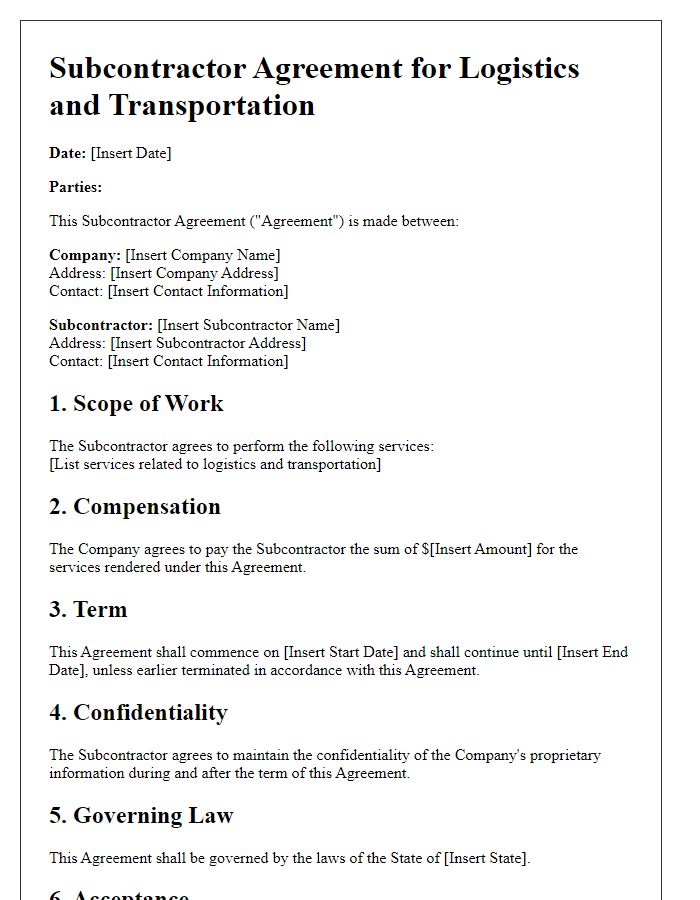

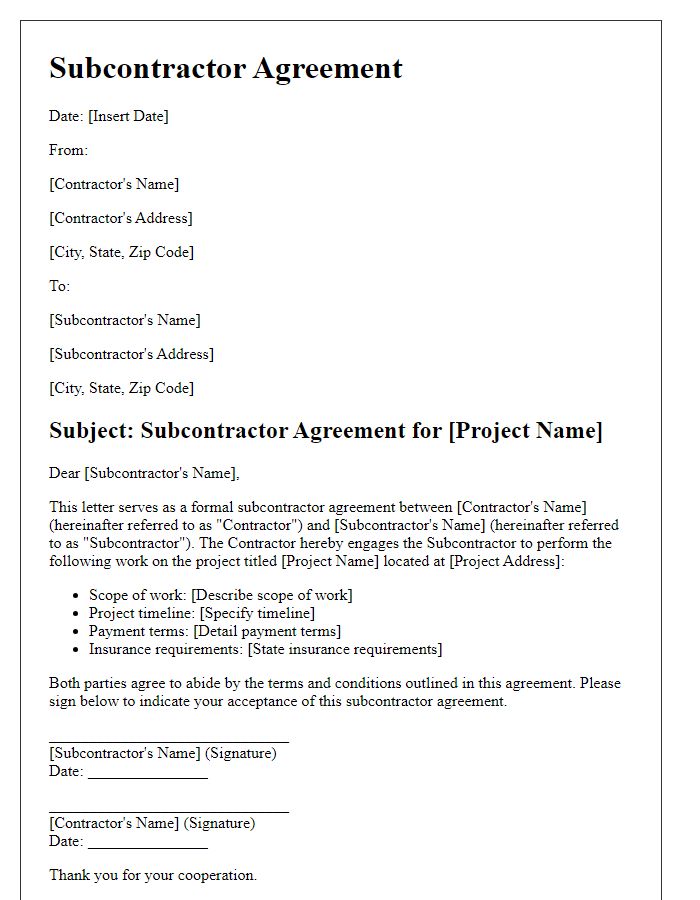
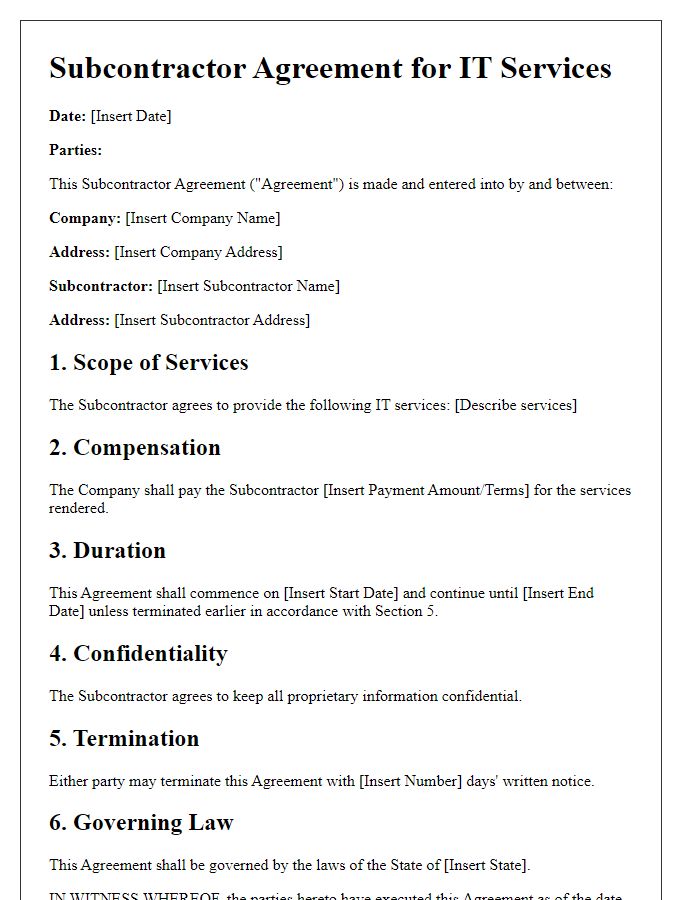
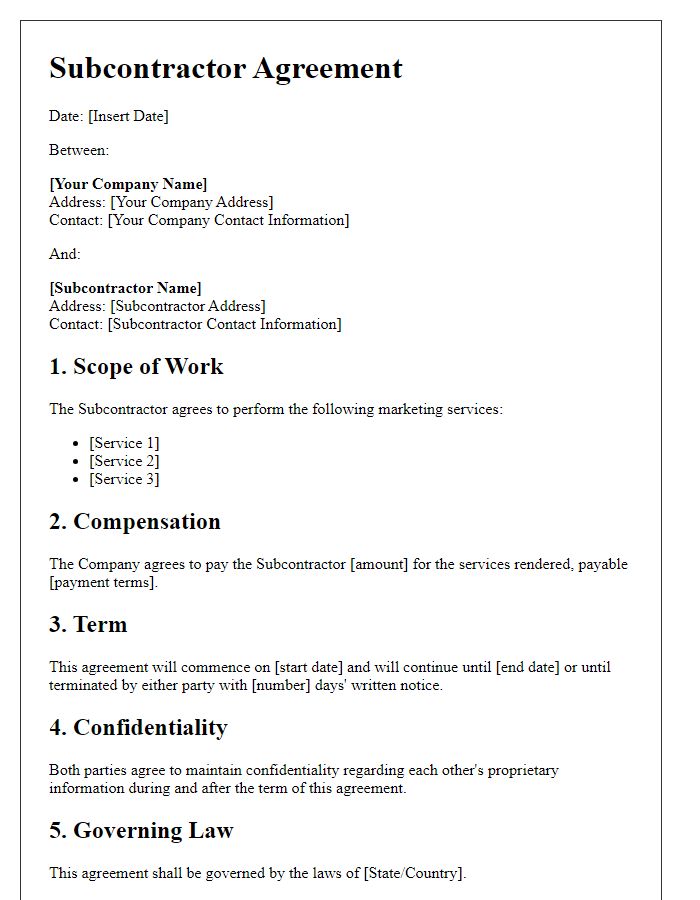
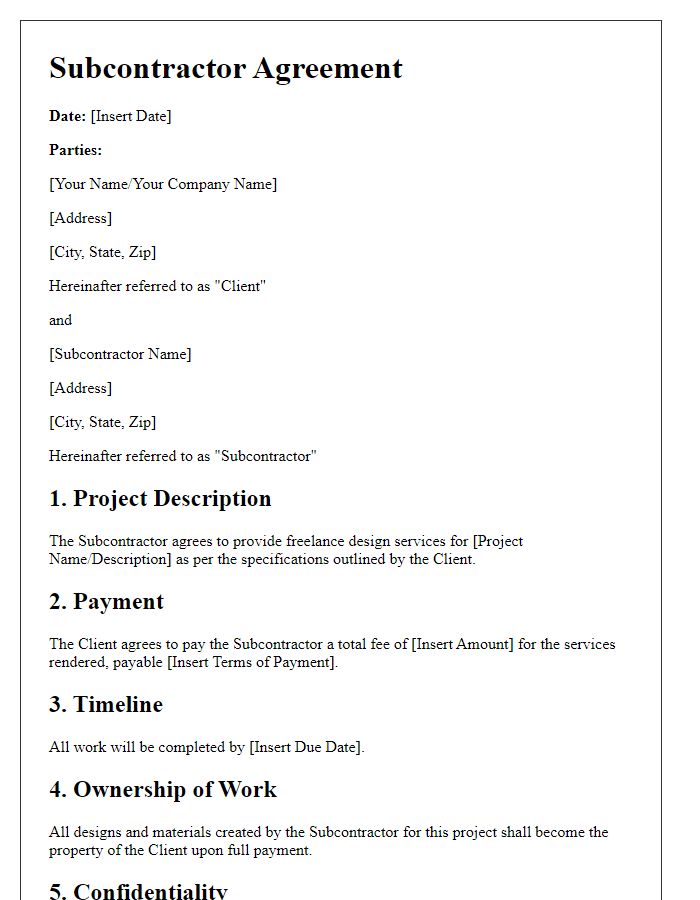
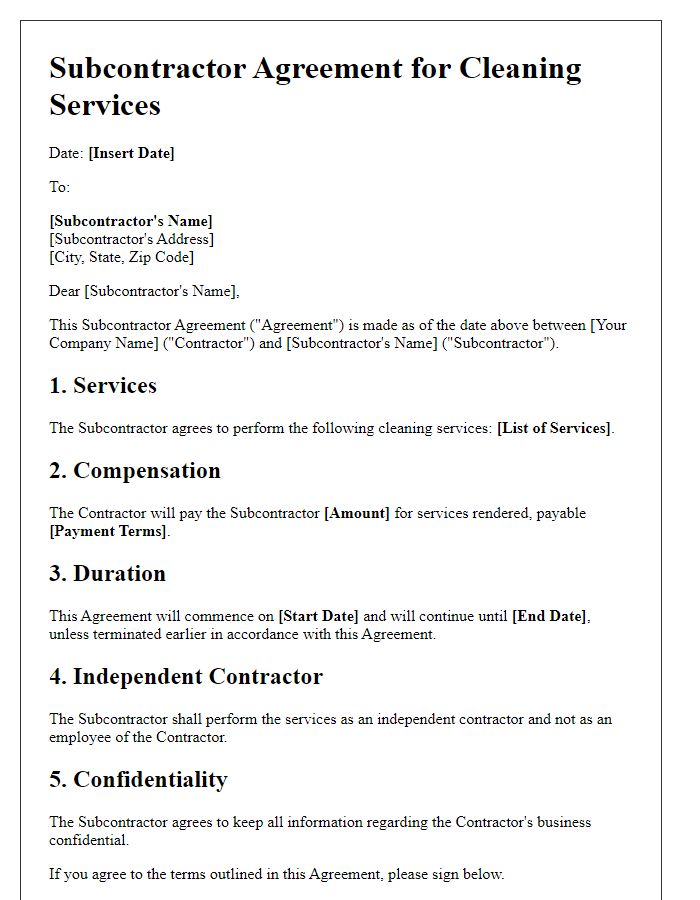
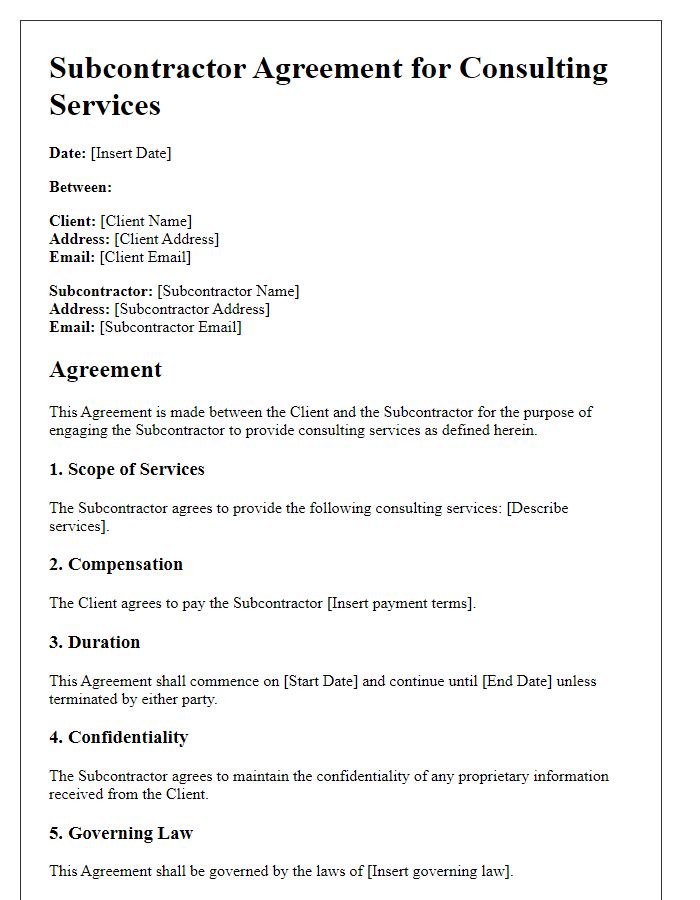
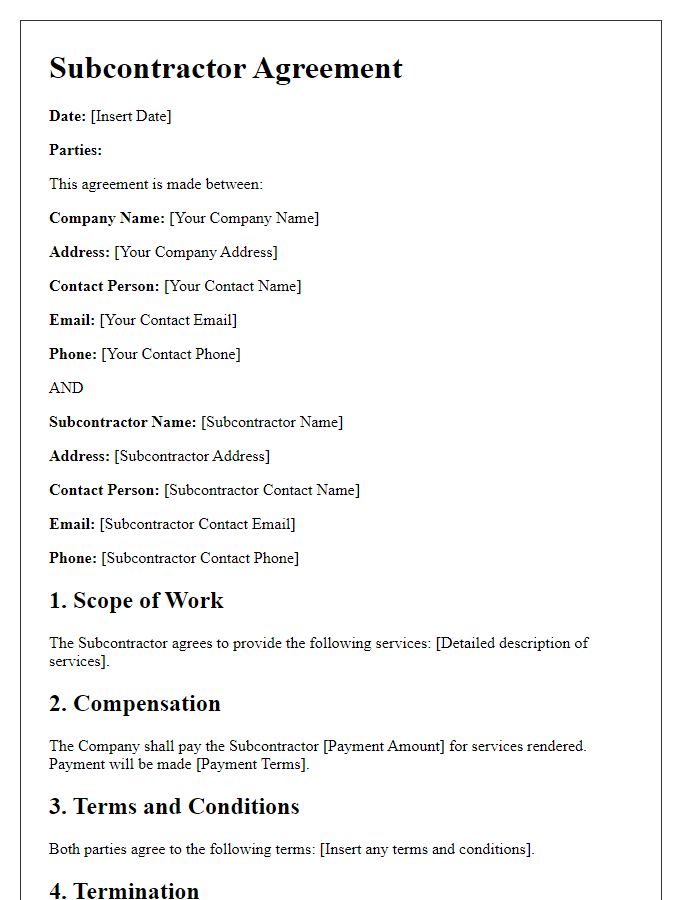
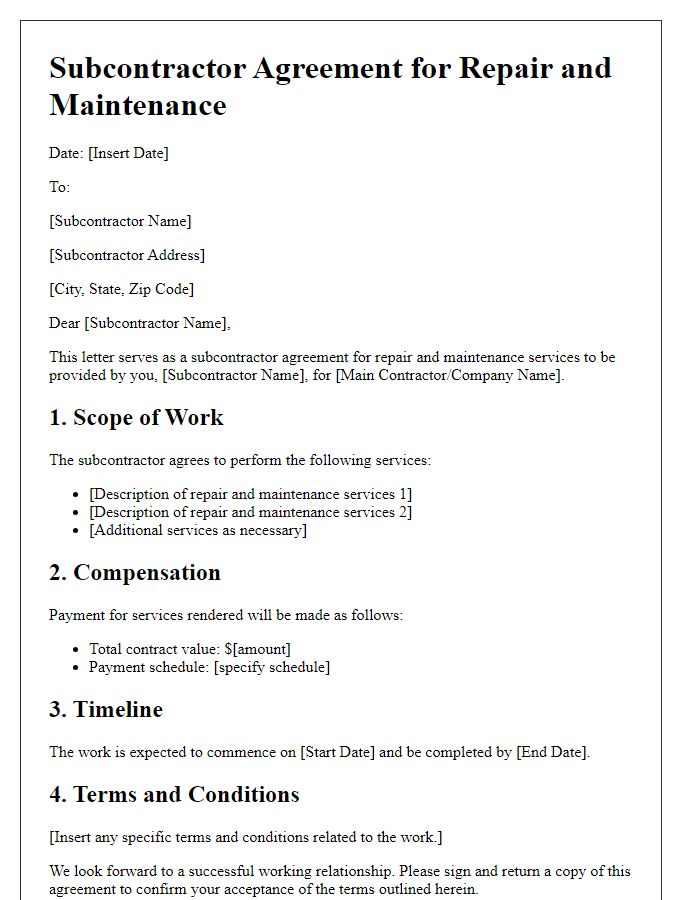
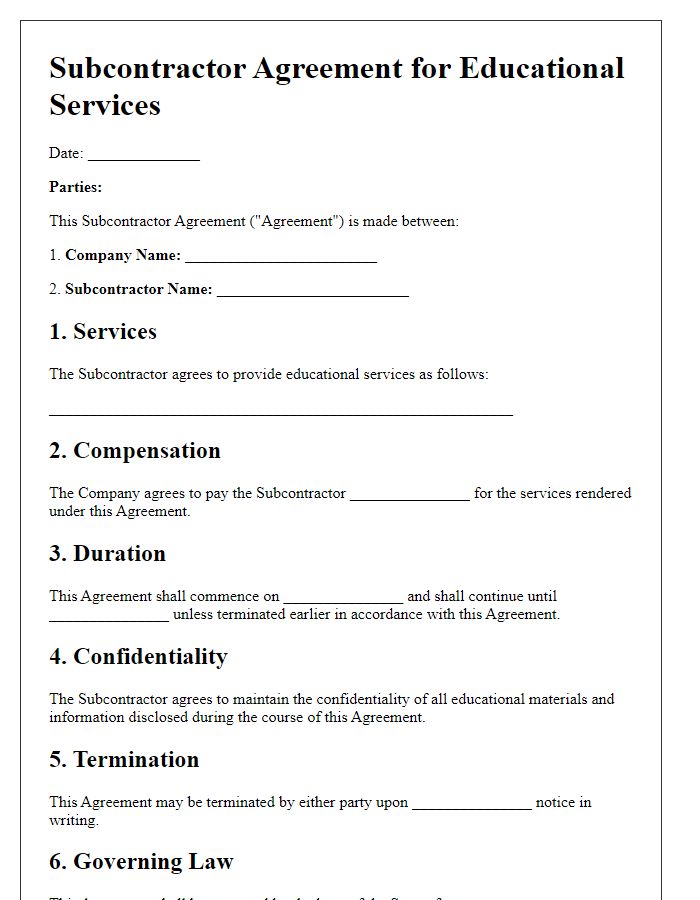


Comments